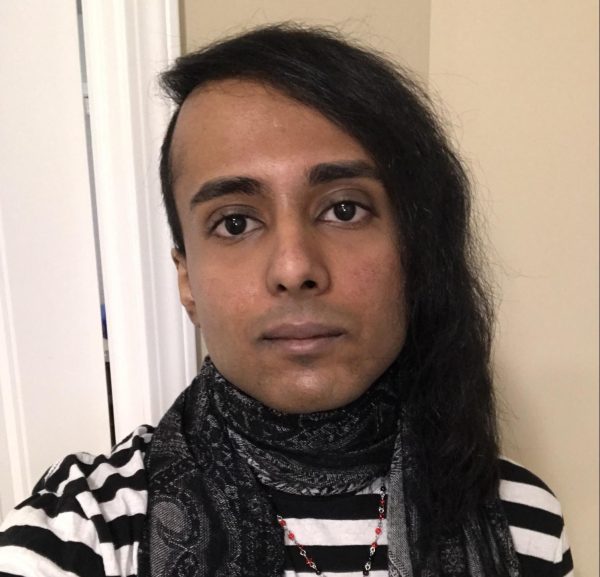A change in perspective means a change in the person
September 16, 2015
At what point does our perspective change? I volunteered last Sunday at the East Aurora Fire Department’s annual fundraiser, and I noticed something quite curious.
For several hours, I did free face painting, which managed to attract every kid in the vicinity. Unfortunately for them, they had no idea that I’m a terrible painter.
As I created one heinous creature after another, it dawned on me that they didn’t share my opinion. They all thought my deranged animals were beautiful, which absolutely baffled me.
When, in the 20 years of my life, did I suddenly lose confidence in my painting ability? At what point did I strop striving for greatness in that aspect of art?
I honestly cannot pinpoint the answer. I have no idea when I started telling myself that I’m a bad painter. This is something I’ve said for years, something I’ve come to terms with, something I’ve avoided.
I saw well over 100 kids that day, and not one of them had anything bad to say. Each kid cared more about the color scheme above all else, perfectly content with the multicolored blobs on their hands.
Looking into the eyes of such innocence, and unyielding optimism, it made me sad that I was no longer the same. I developed cynicism where my art is concerned; I lost confidence in myself.
It could be said that at one-point, years ago, I experienced criticism the way everyone does. It could’ve been constructive, or harsh, but either way, it discouraged me. This criticism put doubts in my mind, and made me question myself.
This first occurrence then paved the way for more skepticism. As children continue to grow older, and develop their own opinions, disagreements lead to dejection. Although I thought I was a good painter, someone else opposed me, and ultimately changed my opinion.
Maybe my self-doubt came from society. We have a tendency to compare ourselves to the likes of Picasso or Van Gogh, or any other prominent figures. We scrutinize our work against theirs, seeing if we could create such iconic pieces. These figures not only set an example, but they’re also used as a rubric, to identify our shortfalls against their strengths.
Painting was never a great desire of mine; it was always my least favorite medium. I’m not sure if my distaste comes from the notion that I’m bad at it, or if I didn’t like it to begin with. It’s almost like saying, “Which came first, the chicken, or the egg?”
There is a good chance that the former is correct, and I walked myself into a self-fulfilling prophecy. I told myself I wasn’t very good, therefore I proved myself correct when I created mediocre art.
Then again, maybe I allowed myself to get discouraged, because it didn’t coincide with my true passions. My attention could’ve been focused elsewhere, busy expanding on a different skill, one that seemed easier or more important.
Somewhere along the way, my potential as a painter disappeared. I gave up on creating anything worthwhile, and accepted my shortcomings.
Looking back on my volunteer experience, I can’t help but see the innocence and acceptance those kids showed me. They were extremely pleased with my rudimentary art, looking at it with fresh eyes, thinking it was the best thing in the world.
I wish that innocence, and general optimism, stays with those kids as they grow older. I hope they don’t give up on themselves, no matter the activity. I hope they overcome the odds, despite the harsh world, and stand up against all forms of criticism.
Chances are, their perspective is going to change, much as mine did. One can only hope that they make the right choices, and continue to see beauty in unconventional aspects of life.
email: [email protected]



